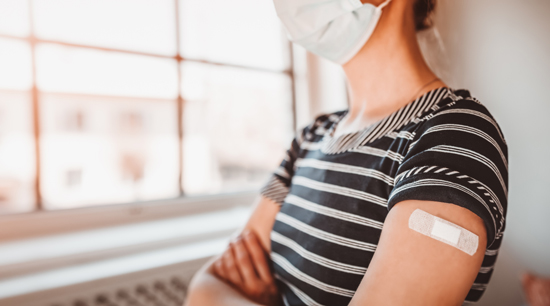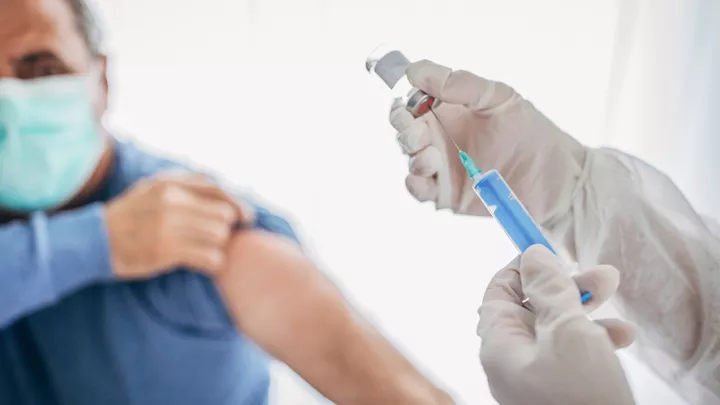
Side effects after the COVID-19 vaccine are caused by your immune system. But a lack of side effects doesn't mean your COVID-19 vaccine didn't work. Read on to find out why side effects happen and why some people feel more side effects than others.
Infectious diseases expert Jasmine Marcelin, MD, says that the most common effect after getting vaccinated is just soreness and pain at the site of the injection itself. "The types of other immune responses that people may have in response to that second vaccine really vary."
For instance, it's common to experience pain at the site of injection, fatigue, chills, headache, low-grade fever and body aches. These side effects can last for a few hours up to a few days. Acetaminophen or ibuprofen can ease these side effects, but these medicines should be taken after receiving the vaccine.
Thank your body for that fever
These side effects indicate that your immune system is responding and creating immunity to COVID-19. Side effects are actually your body's idea – not the vaccine's. When you get a sore arm, fever or fatigue after vaccination, those reactions are your body's way of jumping into action to protect you.
- Why a sore arm? That's inflammation at work in your arm. You can think of inflammation as an alarm signaling that intruders are here and it's time to fight. That way, your immune system can pinpoint exactly where to send its fighters
- Why a fever? A lot of viruses and bacteria can't survive at high temperatures. A fever is your body trying to sweat them out
Why is the second dose often worse than the first?
Dr. Marcelin explains, "It's really the immune system that is showing us that it works – that it remembers that we got the first vaccine. The point of the vaccination is to give our bodies that information to store away. So in the future, when it encounters something that looks like this coronavirus again, it will be able to rev up really quickly."
But what if you had no noticeable reaction to the vaccine? Does that mean you aren't fully protected?
Dr. Marcelin says a lack of side effects doesn't mean a lack of protection. "We talk a lot about how this is your immune system working, and [with these side effects] it's showing you that it's working. And that is true, but if a person does not experience those immune side effects or immune symptoms, that doesn't mean that their immune system isn't working."
"How I like to put is that there are different degrees of how loud our immune systems are. Some people's immune systems, like mine, are just really loud, obnoxious even. And then others just go along quietly, do their job and don't make a fuss. And they're doing what they're supposed to, but they're not going to make a fuss about it. So if you don't experience some of these obnoxious immune effects, don't worry about whether or not you got a good vaccine, or is it working, or is something wrong with your body. It has nothing to do with that. It's just different degrees of loudness."
Watch infectious diseases expert Jasmine Marcelin, MD, answer other questions about the COVID-19 vaccines.



